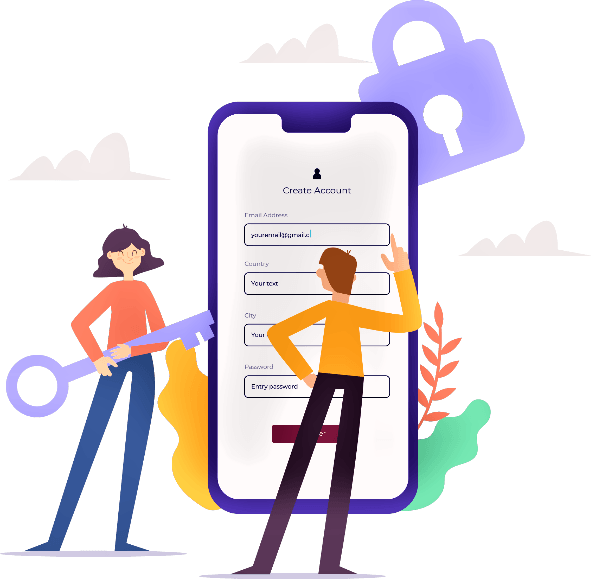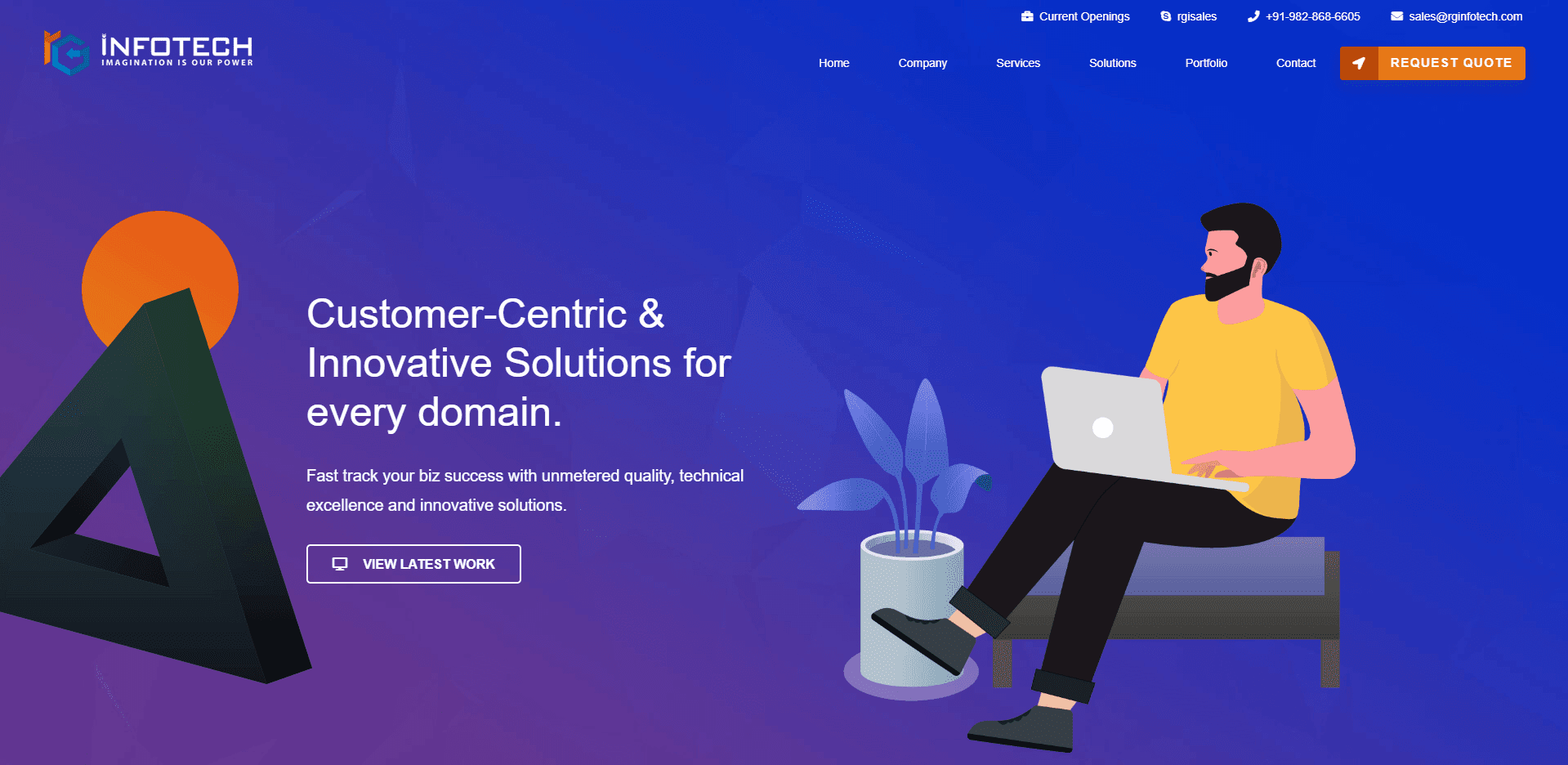The Ultimate Guide to Healthcare Mobile App Development In 2025

What is Healthcare App Development?
Healthcare App Development Market Overview

Benefits of Healthcare Apps for Patients and Providers
Types of Healthcare App Development
1. Patient-Centric Healthcare Apps
-
-
-
- Symptom checkers
- Medication reminders
- Appointment scheduling
- Access to electronic health records (EHRs)
- Remote consultations
-
-
2. Doctor/Nurse-Focused Healthcare Apps
-
-
-
- Electronic access to patient charts
- Medical calculators and diagnostic aids
- Secure messaging and team communication
- Scheduling and task management
-
-
3. Hospital Management Apps
-
-
-
- Staff scheduling and shift planning
- Inventory and supply chain management
- Patient admission and discharge process workflow
- Billing and insurance management
-
-
4. Telemedicine Apps
- Real-time video consultations
- Remote diagnosis and treatment
- E-prescriptions
- Payment integration and follow-up scheduling
5. Mental Wellness Apps
- Tracking of mood
- Tools for Cognitive Behavioral Therapy (CBT)
- Mindfulness and meditation activities
- Access to licensed therapists through chat or video
Key Features for Healthcare Mobile Apps

How to Build A Healthcare App from Concept to Launch

1. Do Market Research & Requirement Analysis
2. Define Your App's Purpose, Goals & Target Audience
-
-
-
- What am I trying to solve?
- Who will use this app?
- What do I want users to achieve?
-
-
3. Select the Ideal Technology Stack
-
-
-
- Frontend: React Native, Flutter (cross-platform)
- Backend: Node.js, Django, or .NET
- Databases: MongoDB, PostgreSQL
- Cloud: AWS, Azure, or Google Cloud
- Security Tools: OAuth 2.0, JWT, SSL, HIPAA-compliant frameworks
-
-
4. Create an Intuitive UI/UX
-
-
-
- Easy to navigate
- Large, easy-to-read fonts
- Accessible color contrast
-
-
5. Build the Healthcare Mobile App (Frontend & Backend)
-
-
-
- Frontend Development: Make user interfaces responsive and cross-platform compatible.
- Backend Development: Develop secure APIs, database management, and server-side logic.
-
-
6. Integrate Third-Party APIs & Services
-
-
-
- EHR/EMR systems (e.g., Epic, Cerner)
- Telehealth SDKs (e.g., Agora, Twilio)
- Wearable device APIs (e.g., Apple HealthKit, Google Fit)
- Secure Payment Gateways (e.g., Stripe, PayPal)
-
-
7. Performance and Usability Testing
-
-
-
- Functionality: Does every feature work correctly?
- Security: Is sensitive data encrypted and protected?
- Compliance: Does the app meet HIPAA, GDPR, FHIR, or HL7 standards?
- Usability: Is the user journey intuitive for both patients and providers?
-
-
Best Practices for Secure Healthcare App Development

Major Compliance Requirements in Healthcare App Development
Technology Stack for Mobile Health Apps Development
Top Healthcare App Development Trends for 2025
Challenges in Healthcare App Development

1. Data Security & Privacy Issues
2. Regulatory Compliance Complexity
3. Integration with Legacy Healthcare Systems
4. User Adoption and Retention
5. Interoperability Challenges
6. High Development and Maintenance Expenses
7. Managing Varied User Needs
How To Generate Revenue From a Healthcare App
Cost of Healthcare App Development

-
-
-
- Basic App: $30,000 – $50,000
- Mid-Level App: $50,000 – $100,000
- Advanced App: $100,000+ (includes AI, integrations, real-time video, etc.)
-
-
How RG Infotech Helps in Building Scalable and Secure Healthcare Apps
-
-
-
- GDPR & HIPAA Compliant App Development
- Custom Telemedicine and Remote Monitoring Apps
- Real-time Chat & Video Consultation Integration
- Third-party API & EHR/EMR System Integration
- Analytics Dashboards for Smart Decision Making
- Cloud-based Infrastructure for Scalability & Security
-
-
Future of Healthcare App Development
1. Sophisticated AI and Genomics
2. Decentralized Healthcare Ecosystems
3. IoMT and 6G-Based Autonomous Health Monitoring
4. Intuitive Interaction Through Voice and Brain-Computer Interfaces
Conclusion: The 2025 Ultimate Guide to App Development for Healthcare
Frequently Asked Questions (FAQs)
Your app should adhere to certain administrative, physical, and technical safeguards to ensure HIPAA compliance. Here’s a reduced checklist:
- Encrypt all PHI (Protected Health Information) at storage and transmission.
- Use access controls like multi-factor authentication (MFA) and role-based user permissions.
- Have audit trails and user activity logs for accountability.
- Employ secure hosting solutions that are HIPAA-compliant (such as AWS or Microsoft Azure with healthcare settings).
- Possess an explicit privacy policy and make patients opt in to data capture.
- Perform periodic security audits and have a breach response plan.
Not being able to do these will lead to legal consequences and data breaches, which are detrimental to patients and your business.
Data encryption is a fundamental component of health app security. It makes sure that even if data is intercepted, it is not readable or usable for malicious intent. You must use:
- AES-256 (Advanced Encryption Standard) for encrypting data at rest (on servers or devices).
- TLS 1.2 or later (Transport Layer Security) for encrypting data in transit between the app and servers.
- End-to-End Encryption (E2EE) of messaging or telehealth functionality where physician-patient communication takes place.
Further, encrypt backup information and keep your encryption keys securely stored, preferably in an isolated Key Management System (KMS).
Third-party APIs (such as for EHR entry, insurance, or lab results) bring fantastic capability—but also potential security threats. To safeguard your app:
- Utilize only well-established, vetted vendors with APIs that meet healthcare regulations (such as FHIR or HL7 standards).
- Apply OAuth 2.0 or OpenID Connect for safe authorization.
- Validate and sanitize every API input to avoid injection attacks.
- Track API usage using logs and alerts to identify suspicious behavior.
- Sign Business Associate Agreements (BAAs) with third-party providers when working with PHI (a HIPAA mandate).
Your job doesn’t stop when data is passed over to an external service—end-to-end protection is your responsibility.
Healthcare apps make an easy target for hackers because the information they contain is valuable. The most significant threats are:
Data breach through weak encryption or unsafe cloud storage.
Adopt end-to-end encryption and safe cloud options.
Poor authentication processes.
Implement strong passwords, multi-factor authentication, and restrict access based on user role.
Insecure third-party integrations.
Validate APIs extensively and utilize secure connections with monitoring.
Failure to conduct regular security testing.
Plan for regular penetration testing, code review, and vulnerability scans.
Inadequate user consent and data rights handling.
Always provide clear opt-ins, privacy statements, and data deletion options on request (most importantly for GDPR compliance).
Security-first mentality and avoidance of these pitfalls in every phase of development, from planning and design through deployment, is needed.
Selecting the appropriate healthcare app development company is crucial to creating a secure, user-friendly, and compliant digital health product.
1. Begin by verifying that the company has experience working on healthcare projects — they should be familiar with medical workflows, patient data security, and compliance norms like HIPAA, GDPR, or HL7/FHIR. Look at their portfolio and client reviews to measure their expertise and trustworthiness.
2. Then assess their technical skills in handling AI, IoT, cloud computing, and data encryption, and whether they can create iOS and Android applications. Good healthcare developers will also consider UI/UX design so that the application is user-friendly and accessible to everyone.
3. Ensure the company provides robust data protection features, facilitates integration with EHR systems or wearable devices, and includes periodic maintenance and updates post-launch.
4. Lastly, ensure transparent communication, responsive project management, and reasonable pricing that considers the quality and compliance requirements of healthcare solutions.
Briefly speaking, the ideal healthcare app development firm integrates technical competence, experience in the industry, and utmost emphasis on security and compliance to provide a secure healthcare app.



 rgisales
rgisales



